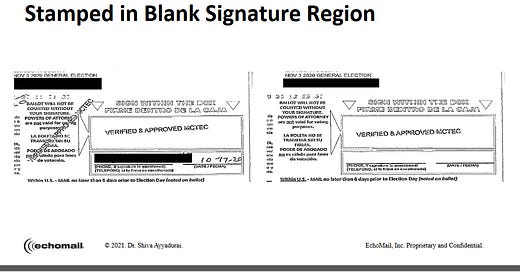Unmasking Twitter & Election 'Black Boxes'
Elon Musk's move to acquire Twitter and restore a neutral platform ahead of the midterm elections could also shine a spotlight on "black boxes" that tabulate votes.
Preserve your "black box" source code, Twitter. And you too, election software vendors.
Tesla pioneer Elon Musk's winning, $44-billion bid for Twitter – and the left's freakout about his intent to restore the platform’s political neutrality –- could be a paradigm shift for free and open debate, and election software that counts the votes.
Breaking open Tw…



